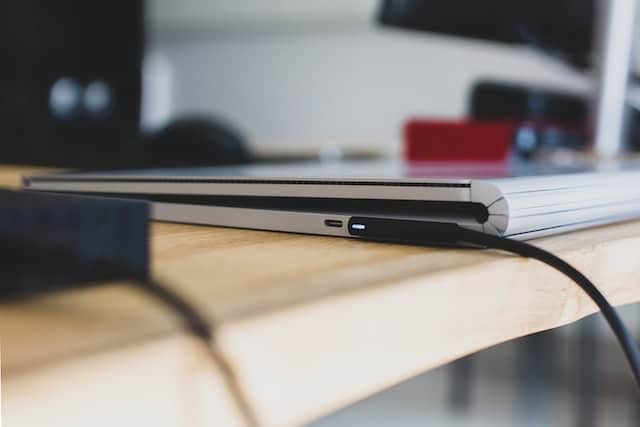Wondering if laptop chargers permitted on planes? Perhaps, you’re in the final stages of packing for your trip, and you remember that you need to bring your laptop charger. Panic sets in as you realize that your laptop is almost out of battery and you have a long flight ahead. But will the airline allows you to bring your charger on board? This post will explore the answer to this question and provide information and tips that will be helpful to you as you plan your travel.
Are Laptop Chargers Permitted on Planes?
This is a question that many travelers have, considering the growing dependence on technology. The answer, fortunately, is yes – laptop chargers are allowed on airplanes. There are important guidelines that passengers should know.
- First, it is important to ensure that the charger is properly packaged and secured, so it does not pose a safety hazard.
- Passengers should be mindful of other passengers and avoid using their laptops in a way that would be disruptive.
- Additionally, it is important to be aware of the airline’s policy on laptop usage during takeoff and landing.
While most airlines allow passengers to use their laptops during the flight, some may require that laptops be stored away during takeoff and landing.
Packing Your Laptop Charger
Many people carry laptops as they travel. However, packing your laptop charger can be challenging, as it is a large and delicate item. Here are a few tips to help pack your laptop charger for plane onboarding.
- First, wrap the charger in paddings like a sweater or scarf.
- Put your charger in the hand luggage instead of the checked bags afterward. This will minimize the risk of it being lost or stolen.
- Finally, pack all the necessary adapters and converters so that you can use your charger in any country.
Prohibited Items on Planes
While chargers are permitted on planes, there are items that are not. These items include:
Lithium Batteries
Airlines have strict rules about what items are permitted on planes, and lithium batteries are one of the most common prohibited items. There are main reasons for this restriction. Lithium batteries are extremely flammable, and even a small fire onboard a plane could be catastrophic.
Lithium batteries can overheat and explode, seriously threatening passengers and crew. As a result, many airlines will not allow any devices that contain lithium batteries to be carried onto their planes. If you need to travel with a lithium battery device, you will usually need to ship it via ground transportation instead.
Self-Defense Sprays
Most people know that certain items are prohibited on airplanes, such as weapons and explosives. However, many people are surprised to learn that self-defense sprays are also included on the list of banned items.
The reasoning behind this is that self-defense sprays can be used to disable an attacker, but they can also be used to cause harm to innocent bystanders. In addition, the spray canisters are pressurized, which could pose a danger if they leak or explode. For these reasons, leaving your self-defense spray at home when traveling by plane is important.
Corrosive Substances
Many items are prohibited on airplanes due to the risk they pose to the safety of passengers and crew. One such category of items is corrosive substances. This includes any liquid, gel, or aerosols capable of causing severe damage to flesh or metal. Common corrosive substances include battery acid, pool chlorine, and drain cleaner.
These substances are particularly dangerous because they can easily cause serious injuries if they come into contact with skin or eyes. In addition, they can also start fires if they spill onto other flammable materials. As a result, these items mustn’t be brought onto an airplane.
Passengers attempting to do so may face hefty fines and jail time. Radioactive materials While it may seem counterintuitive, materials that emit radiation are not allowed on airplanes. As it can interfere with the electronic equipment on the plane.
In addition, they pose a health hazard to passengers and crew members. While there are some exceptions for certain medical devices, it’s generally best to leave any radioactive materials at home when traveling by air.
Sharp Point Edges
Items like screwdrivers, box cutters, and ice picks are all examples of sharp point edges that are not permitted on planes. Since these items could be utilized as weapons. In a hijacking or terrorist attack, sharp point edges could be used to threaten or injure passengers and crew members.
While there have been no major incidents involving sharp point edges on planes in recent years, the potential for danger is still enough to keep these items off of airplanes. For a list of items that are not permitted on airplanes, please consult TSA”s website.
Final Words
We hope your queries on are laptop chargers permitted on planes have been answered. Also following these simple guidelines, you should have no problem bringing your laptop charger on board with you.
So go ahead and finish that work project, catch up on your favorite TV show, or play some games – knowing that you won’t have to worry about your battery running out of juice. Happy travels!

